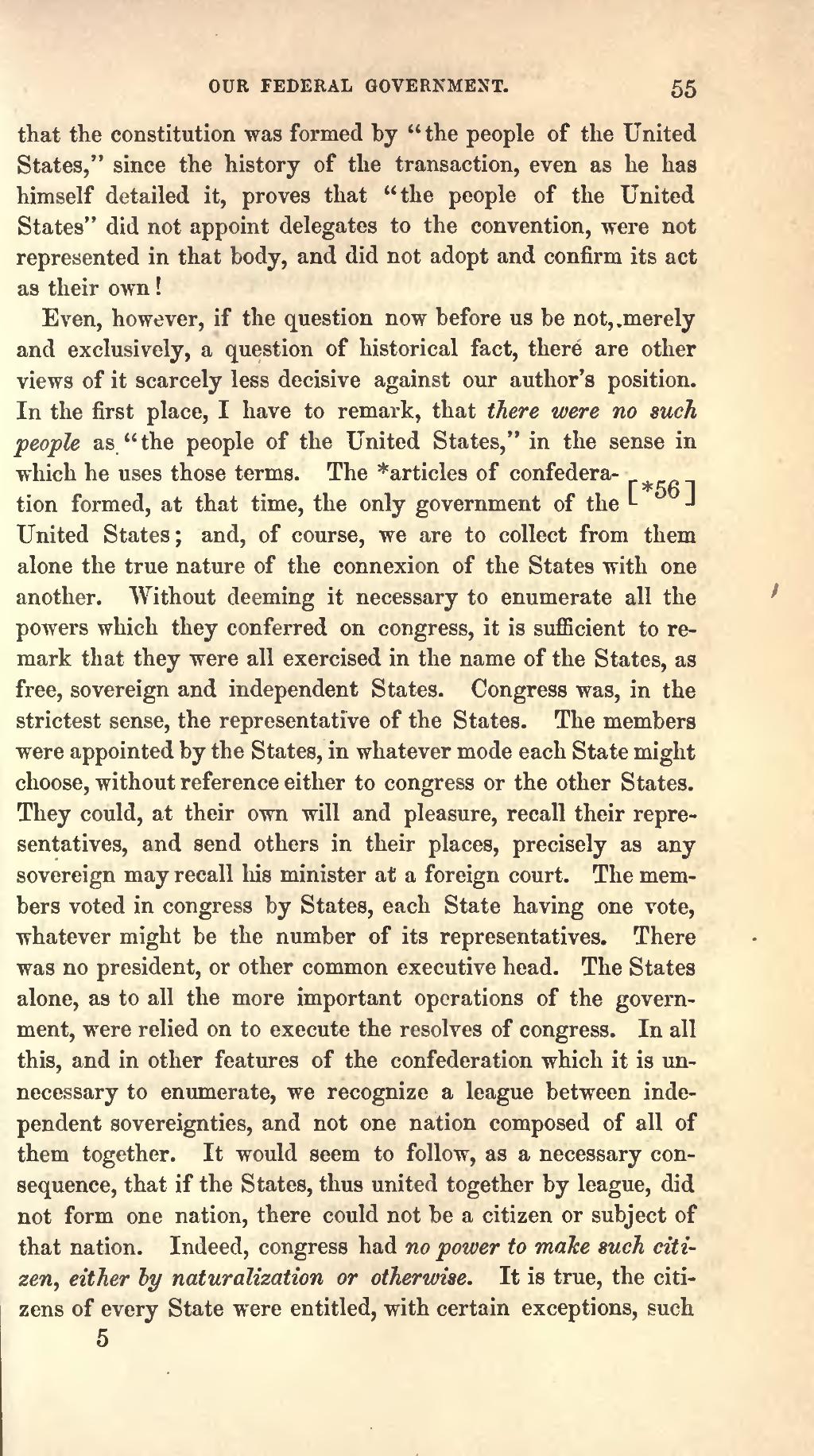that the constitution was formed by "the people of the United States," since the history of the transaction, even as he has himself detailed it, proves that "the people of the United States" did not appoint delegates to the convention, were not represented in that body, and did not adopt and confirm its act as their own!
Even, however, if the question now before us be not, merely and exclusively, a question of historical fact, there are other views of it scarcely less decisive against our author's position. In the first place, I have to remark, that there were no such people as "the people of the United States," in the sense in which he uses those terms. The [ *56 ]*articles of confederation formed, at that time, the only government of the United States; and, of course, we are to collect from them alone the true nature of the connexion of the States with one another. Without deeming it necessary to enumerate all the powers which they conferred on congress, it is sufficient to remark that they were all exercised in the name of the States, as free, sovereign and independent States. Congress was, in the strictest sense, the representative of the States. The members were appointed by the States, in whatever mode each State might choose, without reference either to congress or the other States. They could, at their own will and pleasure, recall their representatives, and send others in their places, precisely as any sovereign may recall his minister at a foreign court. The members voted in congress by States, each State having one vote, whatever might be the number of its representatives. There was no president, or other common executive head. The States alone, as to all the more important operations of the government, were relied on to execute the resolves of congress. In all this, and in other features of the confederation which it is unnecessary to enumerate, we recognize a league between independent sovereignties, and not one nation composed of all of them together. It would seem to follow, as a necessary consequence, that if the States, thus united together by league, did not form one nation, there could not be a citizen or subject of that nation. Indeed, congress had no power to make such citizen, either by naturalization or otherwise. It is true, the citizens of every State were entitled, with certain exceptions, such
